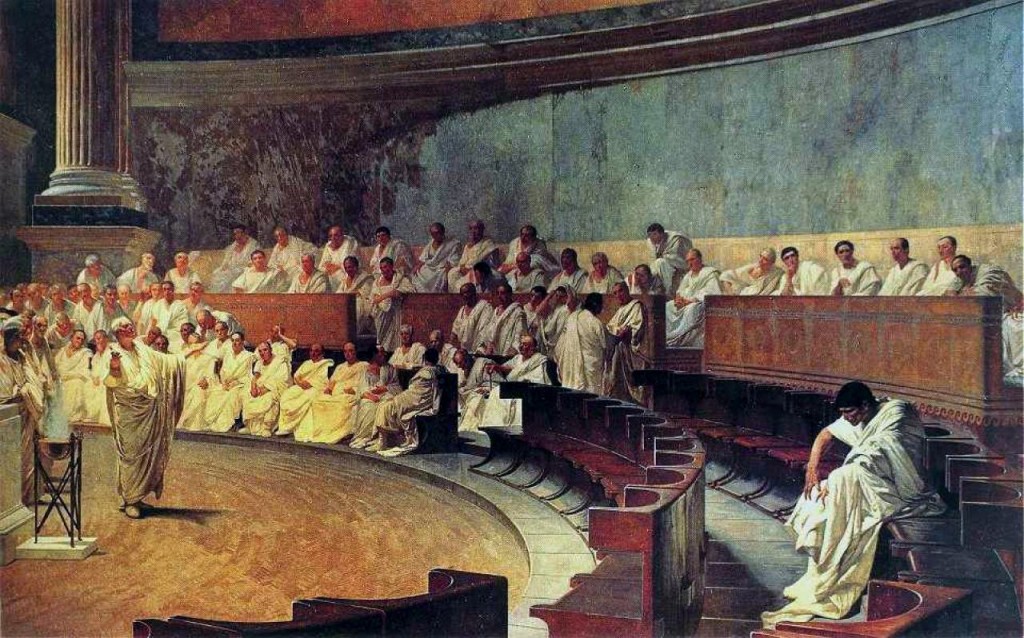We’re starting this week off with another look at the upcoming supplement for Reign, THE NINTH LEGION.
This time we’ll be having a look at what’s in store for the New Roman Society.
New Roman Society
New Roman values, like those in the old world, centre around personal pride in one’s duties, seriousness of purpose and a sense of responsibility, honesty and loyalty. Romans regard Personal honour and public reputation as inseperable- a citizen is how they are perceived. Reputation is everything.
Thanks to the two motivators of duty and a desire for public acclaim, upper class New Romans often seek high office, but politics is often corrupt despite the nation’s stern ideals.
New Roman society, like Roman society before it, is divided into formal classes. Certain administrative, military, and religious positions are only allowed to people of a sufficiently high class.
At the bottom are non-citizens and slaves, who have few rights and cannot hold most administrative and religious positions. A non-citizen who joins the New Roman army as an auxiliary for a period of service will earn New Roman citizen ship.
Then come the citizens, who have full rights in New Rome. They can serve in the Ninth Legion and vote in elections. Most administrative and senior military positions are reserved for those of higher social status. Promotion to a higher status is possible for citizens who stand out.
The lower ranks of the upper classes are termed equestrians, from a time when this class provided the cavalry for the Roman legions in the old world. Equestrians occupy the majority of the administrative and senior military positions in Roman Arcadia.
The top class is the senatorial class, and the top administrative and military positions can only be occupied by one of this class.
The Emperor’s Dream
According to what is already legend, though it took place less than a century ago, Jupiter blessed the first Emperor of New Rome, Gaius Flavian Aquila, in a dream. This dream promised Aquila that he and descendants would rule over a new and powerful province with the Ninth Legion at its core. As his part of the deal, Aquila was to ensure that the gods were honoured, and Roman values and traditions were central to the new state.
The Emperor formed a new senatorial class consisting of local nobility who were already allied to him, and the centurions and higher officers of the Ninth Legion- including some amongst the auxiliaries who were not previously even Roman citizens. Further local people of importance, the lower ranking officers such as optios and signifers amongst the legionaries, and a good number of auxiliary commanders formed the equestrian class. The remainder of the Legion- whether legionaries or auxiliaries- and everyone else who had sworn to serve the emperor at that time all become citizens.
The administrators of New Rome came from the new equestrian and senatorial classes in a system which grew into that existing today. Moving up social ranks is easier than it was in the old world. There is still a wealth requirement, though even that is far less than it was before.
The emperor’s dream, and promise to honour the Roman gods and traditions, partially accounts for the extent to which the Romans in Arcadia try to behave as their counterparts in the old world, though there has been some drift over the century they have been here. The other reason is a bloody minded determination on the part of the Roman authorities to hold on to their identity as Romans in this world where so much is different- they will not be taken in by Arcadia and changed into something different. That way lies the chaos they oppose.
